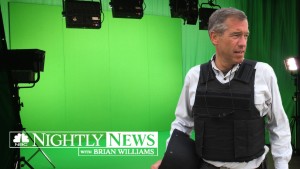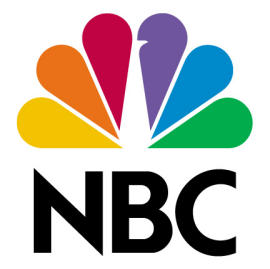Brian Williams: Propeller of Lies
Posted: February 20, 2015, 2:00 p.m.
by Laura Gregory.
As public relations students, we learn time after time that the key to crisis communication is an immediate and sincere apology. However, the news headlines seem to indicate that this is not the approach most often used. Some of the most prominent individuals in society continue to ignore this “golden rule” and choose to argue their innocence or shift the blame when things go awry. NBC’s handling of the recent controversies surrounding popular news anchor Brian Williams falls into this category.
 Brian Williams is one of the most recognized names and faces in the country. Up until recently, he enjoyed deep and widespread respect in the news industry and is famous for his ability to tell a story and capture an audience when reporting the news. But it’s this storytelling ability that may have caused his recent fall from grace.
Brian Williams is one of the most recognized names and faces in the country. Up until recently, he enjoyed deep and widespread respect in the news industry and is famous for his ability to tell a story and capture an audience when reporting the news. But it’s this storytelling ability that may have caused his recent fall from grace.
Over the past few weeks, it was revealed that a story about his time in Iraq — which Williams told repeatedly, starting as early as December of 2005 – was somewhat fabricated. Williams claimed that a helicopter in which he was riding came under fire and was hit. However, on Jan. 30, a Facebook comment from a man actually on the helicopter that was hit claimed that Williams was lying. Williams was actually in a helicopter following the one that was hit. In light of the controversy, many have called into question a number of other stories Williams told while reporting, such as those in the aftermath of hurricanes Katrina and Sandy.
In response to the allegations, Williams issued an on-air apology five days later on Feb. 4, stating, “In an effort to honor and thank a veteran who protected me and so many others after a ground fire incident in the desert during the Iraq war, I made a mistake in recalling the events of 12 years ago.” However, many deemed the 55-second apology insincere and thought Williams failed to take full responsibility for his actions.
Williams is not the only one receiving ridicule and negative feedback in light of this controversy. NBC waited 11 days before taking any action. On Feb. 10, NBC announced that Williams would be suspended for six months without pay. NBC News President Deborah Turness issued a memo to employees stating that Williams’ actions were “wrong and completely inappropriate for someone in Brian’s position” and that “Brian has a responsibility to be truthful and to uphold the high standards of the news division at all times.”
 While NBC’s ultimate decision to suspend Williams satisfied many Americans and was arguably the right thing to do given the situation, the response still came too late. It would have been more appropriate to issue the suspension immediately after the controversy developed. Further, a suspension by definition is not a permanent action. The uncertainty of whether or not Williams will ultimately return to NBC is still left up in the air and has left many skeptical of NBC’s decision.
While NBC’s ultimate decision to suspend Williams satisfied many Americans and was arguably the right thing to do given the situation, the response still came too late. It would have been more appropriate to issue the suspension immediately after the controversy developed. Further, a suspension by definition is not a permanent action. The uncertainty of whether or not Williams will ultimately return to NBC is still left up in the air and has left many skeptical of NBC’s decision.
Williams is just another name on the list of well-known individuals who failed to address a crisis situation appropriately. Others in his boat include Amy Pascal, who recently announced she would be resigning as co-chairman for Sony Pictures after ugly emails she wrote about big Hollywood names were made public through a massive hacking, and Paula Deen, who lost her show on the Food Network after admitting in court testimony to using racial slurs.
The important lesson here is the same one we’ve learned since day one in the public relations industry. When dealing with a crisis or mounting controversy, the best response you can give is an immediate and sincere apology. Your audience wants to hear you say you are sorry (and mean it!) and take responsibility for your actions. People make mistakes every day; it’s a fact of life. However, if you try to shift the blame or scream innocence, you risk losing the respect and trust of your peers and your audience.
Opinions
Comments are closed.





Post comment
This article grabbed my attention because of the immensity of this scandal and how it directly relates to public relations. Brian Williams, who was one of the most respected nightly news anchors of our day, completely violated the ethical rules of journalism. After lying about a series of events his apology seemed insincere. Any person familiar with public relations can see that this situation was not handled to the best of its ability. I agree when you say NBC took way too long to fire Williams and his apology came off as phony. Moreover, I enjoyed reading this because it is from the perspective of a public relations student. It demonstrates the importance of our morally self-regulated profession and shows how one mishandled mistake can cost you your job. Because our desired profession is based off a high standard of moral and ethical conduct, it is important we tell the truth and represent our company or organization in the highest regard.
Permalink